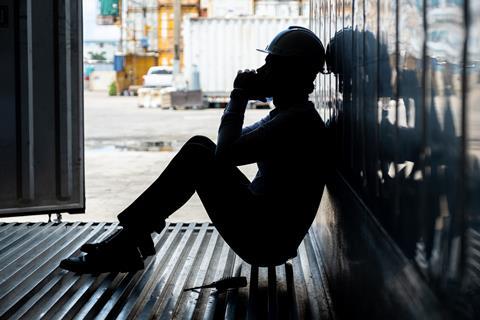As a strategic consultant in ESG to several leading property developers and contractors, I think it is increasingly apparent from the industry’s stark mental-health situation that we need to focus and offer more support in this area.

The risk of suicide within the property and construction industry is more than three times higher than the male national average, equating to two people every day taking their own lives (ONS). Research also suggests that 40% of men do not want to talk about their mental health (Priory Group) and two thirds of operatives who have taken time off for mental ill-health have hidden reasons for doing so from their employer.
Looking after the physical health of workers within the industry has always been a priority. Over the past few years, there have been advancements on how the mental health of workforces is being supported and that we should be offering psychological PPE as well as physical PPE with regard to health and safety in the workplace.
It is also important not just to offer help when people are at a crisis point. We need to steer the mental-health narrative to support people in understanding what they can do to take a positive and proactive approach to their own mental ill-health prevention. Employers need to look at ways to give employees the ability to invest in their own psychological health from a positive and proactive standpoint.

We must be pivotal and pioneering to ensure approaches and strategies evolve and support the workforce in the best way possible. But most of all, we must ensure that the conversation around mental health in the construction industry never stops.
Tom Storey is co-founder of Ownminder, an app-led mind fitness training product




























No comments yet